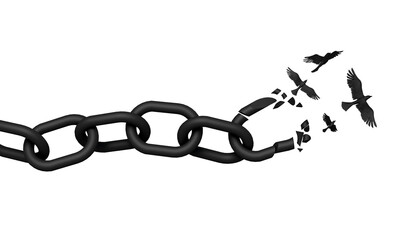Stress is a reaction of the body when we feel threatened, or are under pressure. Stress usually occurs when the situation is out of our hands. E.g When there is a deadline in your office and you think it was very difficult for you to meet the demands of your client that’s when you have stress about your deadline.
When there is an assignment in your university or college but you can’t find specific data related to your topic that’s when you feel stressed.
Types Of Stress
- Not all the stress we face is threatening some stress is positive stress that helps us in our growth. These are called Eustress.
- Another type of stress is when the situation is not in our control, we feel threatened and the body’s response to that situation is stress. This is called Distress E.g lots of responsibilities if your family is going through a difficult time, such as bereavement or financial problems, during natural disasters or events like the coronavirus pandemic.
Stress can lead to Mental Health Problems
Stress can cause mental health problems. And it can make existing problems worse. For example, if you experience lots of stress, this might lead you to develop a mental health problem like anxiety or depression. Or a traumatic period of stress might lead to post-traumatic stress disorder (PTSD).
Stress Management Plan Using 4 A’s
Avoid
Believe it or not, you can simply avoid a lot of stress. Plan ahead, rearrange your surroundings, and reap the benefits of a lighter load.
- Take control of your surroundings. The traffic is really bad.Why not you leave early for work,or take less traveled route. If you hate waiting in line at the cafeteria? Pack your lunch and eat at your desk or in a break room.
- Avoid people who bother you. If you have a co-worker who causes your jaw to tense, put physical distance between the two of you. Sit far away at meetings or walk around his or her cubicle, even if it requires some extra steps.
- Learn to say no. You have a lot of responsibilities and demands on your time. At a certain point, you cross the line between being charitable and being foolish. Turn down the neighborhood sports league. Those around you will appreciate more time with a relax you. And you’ll have time to enjoy them, too.
- Ditch part of your list. Label your to-do list with A’s, B’s, and C’s, according to importance. On hectic days, remove the C’s from your list.
However, some problems can’t be avoided. For those situations, try another technique.
Alter
One of the most helpful things you can do during times of stress is to take inventory, then attempt to change your situation for the better.
- Respectfully ask others to change their behavior. And be willing to do the same. Small problems often create larger ones if they aren’t resolved. If you’re tired of being the target of a friend’s jokes at parties, ask him or her to leave you out of his/her comedy routine. In return, be willing to enjoy his or her other jokes and thank him or her for humoring you.
- Communicate your feelings openly. Remember to use “I” statements, as in, “I feel frustrated by shorter deadlines and a heavier workload. Is there something we can do to balance things out?”
- Manage your time better. Lump together similar tasks — group your phone calls, car errands, and computer-related tasks. The reward for increased efficiency will be extra time.
- State limits in advance. Instead of worry over a colleague’s nonstop chatter, politely start the conversation with, “I’ve got only five minutes to cover this.”
Accept
Sometimes we may have no choice but to accept things the way they are. For those times try to:
- Talk with someone. You may not be able to change a frustrating situation, but that doesn’t mean your feelings aren’t legitimate. Phone or schedule a coffee break with an understanding friend. You may feel better after talking it out.
- Forgive. It takes energy to be angry. Forgiving may take practice, but by doing so you will free yourself from burning more negative energy.
- Practice positive self-talk. It’s easy to lose objectivity when you’re stressed. One negative thought can lead to another, and soon you’ve created a mental avalanche. Be positive. Instead of thinking, “I am horrible with money, and I will never be able to control my finances,” try this: “I made a mistake with my money, but I’m resilient. I’ll get through it.”
- Learn from your mistakes. There is value in recognizing a “teachable moment.” You can’t change the fact that procrastination hurt your performance, but you can make sure you set aside more time in the future.
Adapt
Thinking you can’t cope is one of the greatest stressors. That’s why adapting — which often involves changing your standards or expectations — can be most helpful in dealing with stress.
- Adjust your standards. Do you need to clean your house and dust twice a week? Redefine success and stop striving for perfection, and you may operate with a little less guilt and frustration.
- Practice thought-stopping. Stop gloomy thoughts immediately. Refuse to replay a stressful situation as negative, and it may cease to be negative.
- Reframe the issue. Try looking at your situation from a new viewpoint. Instead of feeling frustrated that you’re home with a sick child, look at it as an opportunity to bond, relax and finish a load of laundry.
- Adopt a mantra. Create a saying such as, “I can handle this,” and mentally repeat it in tough situations.
- Create an assets column. Imagine all of the things that bring you joy in life, such as vacations, children, and pets. Then call on that list when you’re stressed. It will put things into perspective and serve as a reminder of life’s joys.
- Look at the big picture. Ask yourself, “Will this matter in a year or in five years?” The answer is often no. Realizing this makes a stressful situation seem less overwhelming.
Conclusion
We are very busy with different things because we want to achieve everything in our lives. We are in a race with each other to achieve more, which is a good thing but if you think that things are going out of your control then why not seek help from those who can help you to relieve the stress that you face in your life?
Here is a link to Perceived Stress Scale so you can check your stress level with the help of this scale. It helps you to measure your stress level, and according to the stress level, you can use those 4 A’s as stress management.
References
- https://newsnetwork.mayoclinic.org/discussion/mayo-mindfulness-try-the-4-as-for-stress-relief/
- https://www.das.nh.gov/wellness/docs/percieved%20stress%20scale.pdf











Great article ???
Thank you